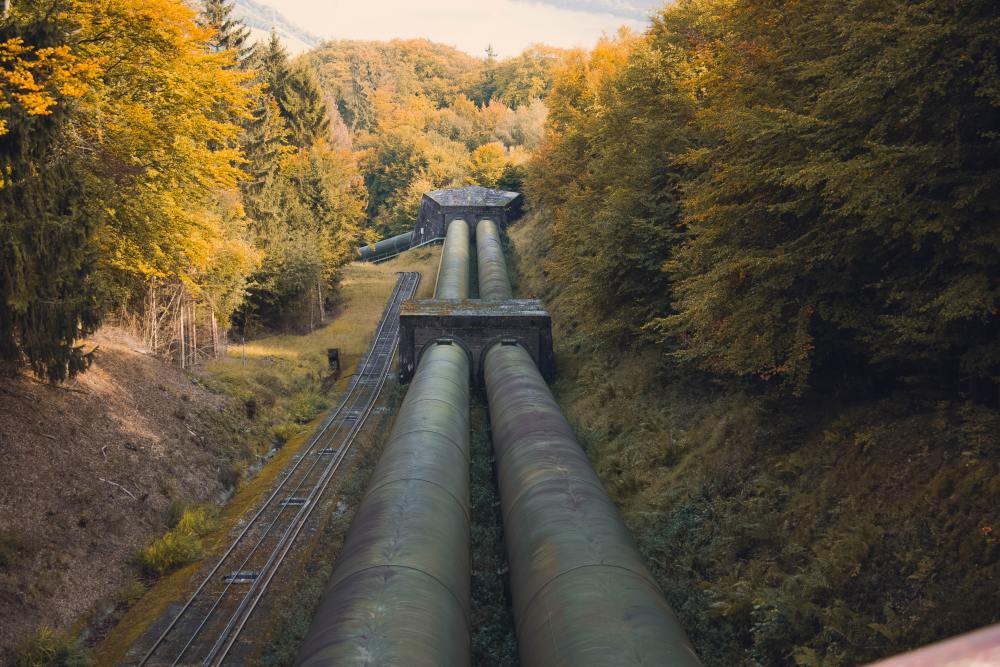(单词翻译:单击)
听力文本
The company behind the controversial Keystone XL oil pipeline is officially terminating the project. That announcement ends a more than decade-long battle over whether the pipeline should even be built. NPR's Jeff Brady has been following the controversy for most of the past decade and joins us now.
Hey, Jeff.
JEFF BRADY, BYLINE: Hey, Ailsa.
CHANG: Ok, so what did the company say today?
BRADY: Well, TC Energy is the company. They used to be called TransCanada. And they said after reviewing options and after consulting with their partner on the pipeline — that's the government of Alberta, one of the partners — they are terminating the project. It's dead, and it's not likely to be revived. The company had stopped construction back in January, when President Biden revoked a key cross-border permit. It was assumed back then that the $8 billion project wouldn't happen, but this makes it official.
CHANG: Wow. All right, well, tell us how environmental groups have been reacting to today's announcement because I know that they've been fighting this project for a really long time.
BRADY: Yeah, the reactions are nothing short of jubilation. And an attorney with the Center for Biological Diversity called this a landmark moment in the fight against the climate crisis. The Keystone XL — you know, it's become to symbolize a lot more than what it was. It's not just the pipeline transporting oil sands — some called it tar sands crude — from landlocked Alberta down to the U.S. Gulf Coast, where it could get onto the world market. It really became a symbol of whether big new fossil fuel projects could be stopped. And over the last decade, we've seen this keep it in the ground movement emerge, scientists say, to avoid the worst effects of climate change. Most of the known fossil fuel reserves have to be left in the ground. And environmentalists really put all their chips on stopping this project, and they succeeded.

CHANG: They sure did. Well, how is the oil industry responding to this decision to terminate the project?
BRADY: Yeah, this is a big loss for them. The American Petroleum Institute put out a statement saying, this is a blow to U.S. energy security and a blow to the thousands of good-paying union jobs the project would have supported. The industry has argued all along that big projects like this create a lot of jobs, and they say pipelines are the safest way to transport crude oil. That argument worked for former President Trump. He revived the Keystone XL after President Obama blocked it. Now that political back-and-forth is over.
CHANG: Well, can we just talk a little more about the kind of oil this pipeline would have transported because from what I understand, it's not the kind of crude oil that comes from a typical oil well, right?
BRADY: No, it's not. This oil sands crude — it has to be mined. And I visited one of these sites up in Alberta, and it was this huge hole in the ground. It looks like something you see at the Grand Canyon. And it doesn't come out of the ground as liquid. It's this gunky substance that has the consistency of Play-Doh. And because of that, it requires extra processing to turn it into crude oil. That processing emits more greenhouse gases than even traditional oil production, and that's one of the reasons why this kind of crude has been so controversial.
CHANG: Well, the world is talking a lot more about climate change than even when this project was launched more than a decade back. What do you think this decision means for climate efforts?
BRADY: You know, I talked with Jane Kleeb at the group Bold Nebraska, which really started this campaign against Keystone XL because landowners there didn't want the pipeline crossing their property. She said this announcement today means early predictions that a big pipeline from a big company can't be stopped — that's just not true. And that's going to embolden pipeline opponents across the country.
CHANG: That is NPR's Jeff Brady.
Thank you, Jeff.
BRADY: Thank you.
中文翻译
参考译文:
备受争议的基石输油管道项目的开发商正式终止该项目。这份公告结束了长达10多年的输油管道建设之争。NPR新闻的杰夫·布雷迪在过去十年的大部分时间里一直关注这一争议,现在他将和我们连线。
你好,杰夫。
杰夫·布雷迪连线:你好,艾尔莎。
张:好,该公司今天说了什么?
布雷迪:这个公司是TC能源公司。该公司过去名为横加公司。他们表示,在审查了各种方案并与该管道的合作伙伴之一阿尔伯塔省政府协商后,他们将终止该项目。这个项目已经死亡,不可能复活。今年1月,拜登总统撤销了一项关键的跨境许可证,随后该公司就停止了施工。当时人们就认为,这个价值80亿美元的项目无法成型,而现在该公司正式宣布了这一消息。
张:哇哦。好,请介绍一下环保组织对今天的声明有何反应,因为我知道他们长时间以来一直在对抗这个项目。
布雷迪:是的,他们的反应简直可以用欢呼雀跃来形容。生物多样性中心的一名律师称这是应对气候危机的里程碑式时刻。相比过去,基石输油管道项象征着很多东西。这不仅仅是一条将油砂(有些人称之为油砂原油)从内陆省份阿尔伯塔省输送到美国海湾沿岸的管道,油砂可以在美国海湾沿线进入全球市场。该项目已成为新建大型化石燃料项目能否终止的象征。科学家表示,过去十年,我们已经看到这种让燃料留在地下这种运动的出现,这旨在避免气候变化的最坏影响。大多数已知的化石燃料储备必须留在地下。环保主义者将他们所有的筹码都放在了阻止这个项目上,最终他们成功了。
张:他们当然成功了。石油行业对终止该项目的决定有何反应?
布雷迪:好,这对他们来说是重大损失。美国石油协会发表声明称,这既是对美国能源安全的打击,也是对该项目将支持的数千个高薪工会工作岗位的打击。业内一直认为,这种大项目能创造大量就业机会,他们表示,输油管道是最安全的原油运输方式。这一论点对前总统特朗普有用。奥巴马总统曾阻止基石输油管道项目,但特朗普重新启动了该项目。现在这种政治上的反复已经结束。
张:好吧,我们能再多谈一下这条管道输送的石油种类吗?因为据我所知,这不是来自典型油井的原油,对吧?
布雷迪:不,不是。这些油砂原油必须开采。我去过阿尔伯塔省的一个工地,其实就是地上的一个大洞。就像你在大峡谷看到的那种东西。这种原油不会以液体的形式从地下采出。它是像培乐多彩泥一样粘糊糊的物质。正因为如此,它需要额外的加工才能转化为原油。这种加工过程排放的温室气体甚至超过了传统的石油生产,这也是这种原油备受争议的原因之一。
张:现在全世界都在谈论气候变化,甚至比十多年前这个项目启动时谈论得还要多。你认为这个决定对气候努力意味着什么?
布雷迪:我采访了Bold Nebraska组织的简·克里伯,这个组织开始了反对基石输油管道项目的运动,因为那里的土地所有者不希望管道穿过他们的土地。她表示,今天这份声明表明,“大公司建设的大型管道无法停止”这种早期预测是不正确的。这份声明将鼓舞全美各地的管道反对者。
张:以上是NPR新闻的杰夫·布雷迪带来的报道。
谢谢你,杰夫。
布雷迪:谢谢。
译文属可可原创,仅供学习交流使用,未经许可请勿转载
重点讲解
重点讲解:
1. used to do sth. 过去常常;过去曾;
We used to go sailing on the lake in summer.
从前的夏天,我们经常泛舟湖上。
2. nothing short of 可以说是;简直;无异于;
The transformation has been nothing short of a miracle.
这种变化堪称奇迹。
3. all along 一直;
This confirms what I suspected all along.
这证实了我一直以来的怀疑。
4. turn into (使)变成;(使)成为;
Ten years of prison had turned him into an old man.
十年大狱使他变成了一个老头。


